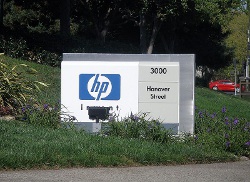It’s Thursday, and around these parts that means it’s time for the Top 10 list, which means nobody nor nothing is safe.
This week it was deja vu all over again (to steal somebody else’s line) over in Cupertino town, where the Zapple… (oops, that’s a cheap wine they might not even make anymore) …the Apple folks have once again managed to misplace (that means “lose” or “leave behind”) a valuable prototype of an unreleased iPhone at a bar. Hmmm… come to think of it, maybe they are the Zapple folks after all.
Just in case you’ve been living in a cave on some remote island somewhere, the exact same thing happened a year ago in an incident that’s just now getting sorted-out in court. You tell us, doesn’t it seem that a company trying to keep its secrets secret would learn not to take those secrets into a bar? But, then again, we’re poor and they’re rich. We do understand that rich yuppies act much differently than folks like you and I.
Anyway, that got us thinking about the possible things a person might do upon finding an iPhone prototype abandoned in a bar. We wanted this to be realistic, so to put ourselves in the proper frame of mind to fully understand the mindset of your typical bar patron, we opened up a bottle of Wild Crow and then let our imaginations run away with us.
So, here it is, our list of the top 10 things to do with an iPhone prototype found in a bar….
- Do the right thing and return it to Apple. Then you get mad when they don’t offer you a reward and start a blog (AppleSux.com or something) and spend the rest of your life writing tirades against Apple.
- You call Gizmodo and try to sell it to them. They say no-way-Jose, been-there-done-that, we-can’t-afford-the-legal-fees, or words to that effect.
- After slipping it in your pocket, you take it back to your apartment. About 4 AM you’re awakened by the sound of fifteen or twenty storm troopers from the SFPD, accompanied by Steve Jobs, breaking into your apartment. After they’ve recovered their device, Jobs will erase your memory so you can’t tell anyone about the new features incorporated into the new iPhone. They’ve got a app for that.
- You steal it, but give it to some other bar patron after you discover it won’t play Flash videos.
- Although you decide to keep it and use it as your new smart phone, you discover after playing with it for about at hour that it’s nowhere near as capable as your Droid Bionic. You leave it behind at another bar.

 Sure, Meg Whitman is something of a minor CEO rock star insofar as her name has a brand recognition. That brand is connected to her performance leading eBay to über success and to a failed bid to become California’s governor. As has been pointed-out countless times since Thursday, when when she was hired as HP’s latest CEO, however, eBay is not a technology company but is an auction house that happens to reside in cyberspace. As for her venture into West Coast politics – does blowing $144 million of her own money (and an additional $34 million of other people’s money) in a failed election bid instill confidence in her ability to make sound decisions?
Sure, Meg Whitman is something of a minor CEO rock star insofar as her name has a brand recognition. That brand is connected to her performance leading eBay to über success and to a failed bid to become California’s governor. As has been pointed-out countless times since Thursday, when when she was hired as HP’s latest CEO, however, eBay is not a technology company but is an auction house that happens to reside in cyberspace. As for her venture into West Coast politics – does blowing $144 million of her own money (and an additional $34 million of other people’s money) in a failed election bid instill confidence in her ability to make sound decisions?